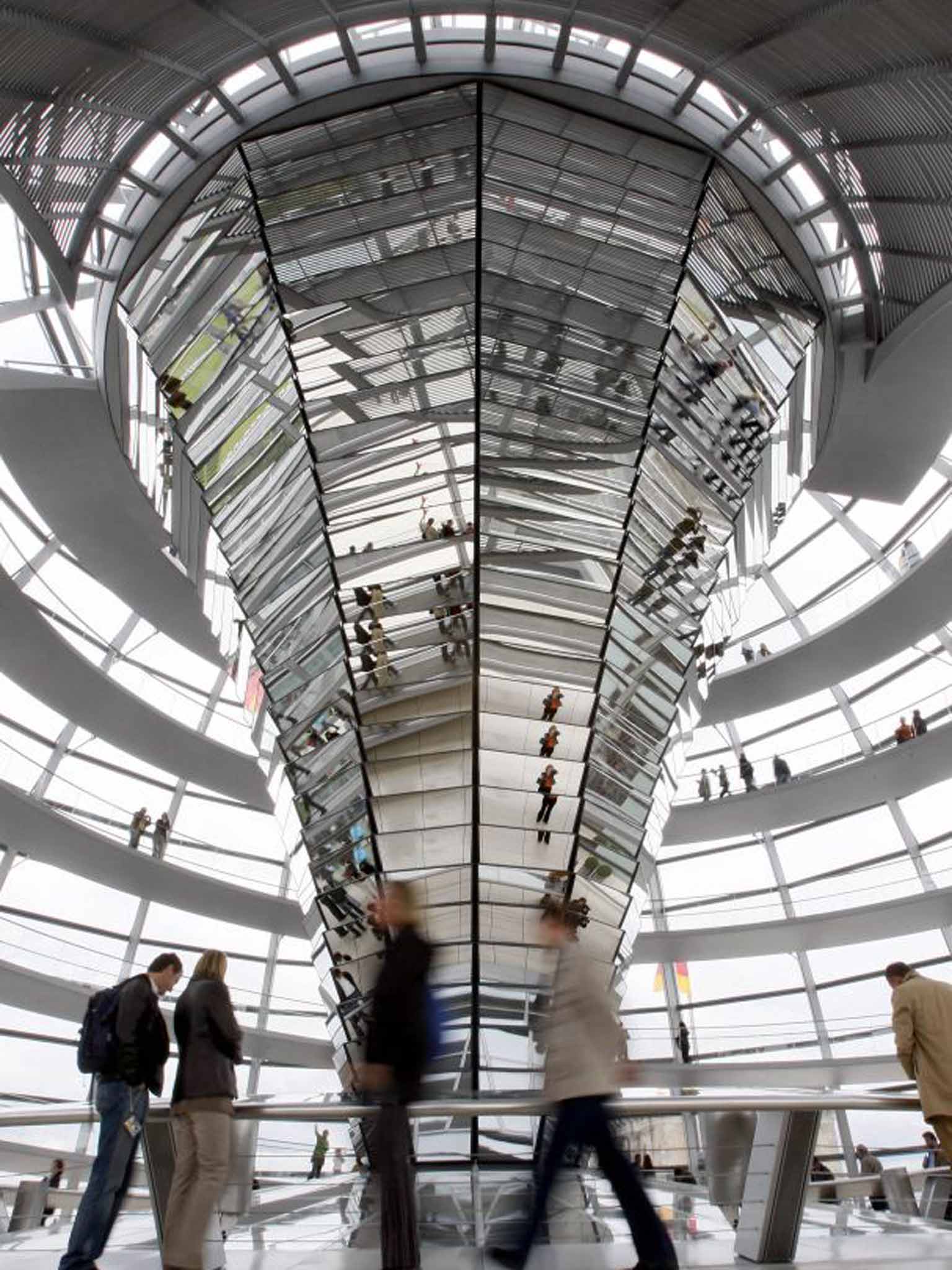Dancing is banned over Easter in Germany
Politicians swaying on Tanzverbot – or ‘dance ban’ – but church won’t be moved

Your support helps us to tell the story
From reproductive rights to climate change to Big Tech, The Independent is on the ground when the story is developing. Whether it's investigating the financials of Elon Musk's pro-Trump PAC or producing our latest documentary, 'The A Word', which shines a light on the American women fighting for reproductive rights, we know how important it is to parse out the facts from the messaging.
At such a critical moment in US history, we need reporters on the ground. Your donation allows us to keep sending journalists to speak to both sides of the story.
The Independent is trusted by Americans across the entire political spectrum. And unlike many other quality news outlets, we choose not to lock Americans out of our reporting and analysis with paywalls. We believe quality journalism should be available to everyone, paid for by those who can afford it.
Your support makes all the difference.Britain’s pubs and clubs enjoy a bumper period over Easter as revellers take advantage of time off work to let their hair down – and more than likely hit the dancefloor.
But that sort of behaviour is banned in Germany, where dancing on Good Friday is actually illegal in 13 out of 16 states, forcing many nightclubs and live music venues to close.
In the remaining three, there’s a ban for part of the day – even in the trendy clubbing hotspots of Berlin, where dance events are banned before 9pm on Good Friday.
And while people found dancing won’t be arrested, venues that hold events which contravene the ban can be fined more than £1,000.
In the most puritanical state, Baden-Württemberg in the south, which has a high Catholic population, dancing events are banned throughout Maundy Thursday, all the way through to 3am on Easter Monday. The state also bans dancing from Christmas Eve until 3am on Boxing Day.

The political debate over the Tanzverbot regularly resurfaces, as pressure from the pub and event management sectors grows.
An interior ministry spokesman told press agency DPA this week that a coalition of the Greens and Social Democrats from the southern state would be discussing whether and how to relax the ban.
But churches, who would be consulted on any change, insist that Good Friday must remain holy.
‘As far as the Catholic church is concerned, Good Friday is not open to debate,’ a spokesman for the Rottenburg-Stuttgart diocese told the Stuttgarter Zeitung.
The ban, which dates back to the Middle Ages, is unpopular with many non-religious groups, with atheists and activists organising protest dances all over the country.
This year, protests took part in various prominent location, including Stuttgart Palace Square, with the theme Rocking Out Against The Tanzverbot.
Bavaria has already announced that it won’t be lifting the ban, which was vehemently defended by Uwe Becker, a member of Angela Merkel’s Christian Democratic Union party.
‘Good Friday is a Christian holiday dedicated to remembering the suffering and crucifixion of Jesus. That does not go together with loud, boisterous celebration,’ she told the Frankfurter Rundschau.
Peter James, chairman of the Stuttgart-based Club Kollektiv, which represents the interests of nightclubs and event organisers in the region, welcomed news that the government was rethinking the rule.
‘The ban does represent a big constraint,’ he told the Guardian.
‘But apart from that just on a personal level I don’t want to be told how I organise my days. We live in a multicultural society, and this is clearly a state imposition, and anyway lifting the dance ban doesn’t mean introducing a dance enforcement.’
Join our commenting forum
Join thought-provoking conversations, follow other Independent readers and see their replies
Comments